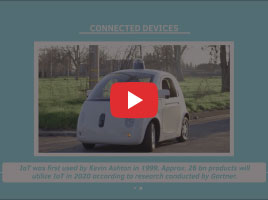Epicor’s latest Industry report revealed that 99% of technology decision-makers plan on migrating their business operations to cloud-based solutions within the next twelve months. As of today, businesses are 17 times more likely to increase their cloud spend in the next twelve months – are you ahead of the curve?
There are many reasons driving this adoption of the cloud, as companies are looking to refocus on core business values and not IT activities. They are looking to better adapt to hybrid work and integrating within their supply chains to build stronger resilience, along with having the latest capabilities and evergreen systems. With so many similar options, the challenge is to choose the right operating platform for your business, with an ERP solution that addresses your needs today but has the adaptability for what they may be in the future.

Generic ERP solutions offer basic functionality, covering areas such as accounting and finance, and perform basic levels of operations, however, these fall short because business is not generic. That’s where industry-specific cloud-based ERPs come into their own. Industry-specific cloud solutions are designed with specific industries in mind and include capabilities to drive best practice approaches through years of innovation and evolution. They also allow tailoring and configuration to specific needs with a focus on the industry – it is not ‘one size fits all’.
With the multitude of cloud providers and services now available, it’s important to carefully evaluate a solution that aligns with your unique objectives and is resilient enough to meet the demands of your industry, now and in the future. Ensure you evaluate ERP vendors with customers in your sectors, like manufacturing, distribution, and building supply, and caution the applicability of solutions that are focused on Non-Profits, healthcare, or services.
Out-of-the-box or customisation – which is best?
An out-of-the-box cloud solution works until it doesn’t, however, customization and configuration carry a cost. The benefit of industry-specific solutions that are adaptable yet mature is that they minimize the need to customize for the industry and allow you to focus on your unique needs. Combining this with teams who already understand your industry results in time savings, as they only need to focus on understanding your business and your pain points. Modules supporting things like warehouse management, Configure, Price, Quote (CPQ,) Manufacturing Execution System (MES), engineering and resource scheduling already exist.
Choosing the right ERP partner
Business is about relationships and it’s important to choose the right partner who knows your industry, understands you and your competitor’s pain points and has the right combination of technical and industry knowledge. A partner who will work with you to make sure the solution is the right solution for you now, and in the future. They will want to learn about your business and your current processes, then showcase how best practices and specific capabilities can allow you to do more with less.
Ultimately, a partner with a clear understanding of your industry can build a tailored ‘made with you for you’ solution that responds to both your business needs and industry demand so you can quickly respond to new challenges, build a competitive edge and focus on what you do best. Our vision is to enable a world of better business and we do that in the markets we serve.







